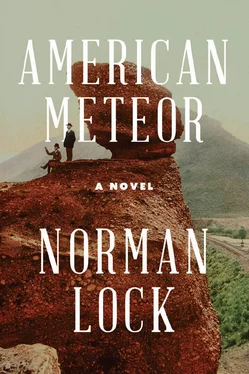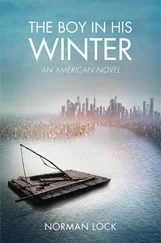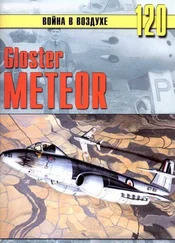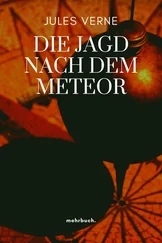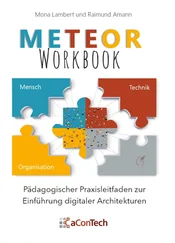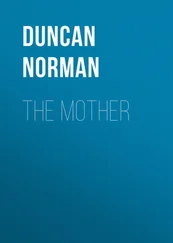I’d never known any Chinese, though I’d seen them in the Devil’s Arcade, mincing down the sidewalk, their pigtails swinging. They worked as cigar rollers and cobblers, mostly. I never gave them much thought, except to yell a wisecrack their way when I was feeling mean. There weren’t many in Omaha at the time, but plenty were breaking their backs for the Central Pacific. They led a sorry life no white man would have tolerated. They’d fled civil war and the Heavenly Kingdom of Great Peace, where they hadn’t stood a Chinaman’s chance, to search for Gum Sham in California: the fabulous Mountain of Gold. Finding hunger and cruelty, tens of thousands of Chinese went to work building the transcontinental railroad, which was progressing like a wool scarf knitted and purled by a blind old woman with rheumatism. The “Celestials”—the insult chink hadn’t yet been coined — were given the worst jobs like, wagon-loading, ballasting, or dynamiting the far West’s flinty terrain: a “ruinous space,” a Boston paper called it. Their industry earned them a lower wage than the Irish; their death, a place for their bones in a wagon car destined for Sacramento. Jack Casement, the Union Pacific’s man in charge of construction, admired the “cone hats” because they weren’t fractious, fussy, scared of “firecrackers,” or liable to strike for better wages. Besides, their ancestors had built “the world’s biggest piece of masonry.”
Yellow men can go bad the same as white men. How could it be otherwise, given the universal temptation to bite the outlawed apple? But a story is a kind of sieve, and I’ve let the Chinese workers sift out extra fine; the Irish, I’ve made the chaff. It isn’t fair, but being a Mick myself, I feel entitled to the prejudice. Life is truly rendered in subtle tones — to speak like a photographer — but its drama is made more powerful by the stark contrast of chiaroscuro. Every storyteller knows as much.
Chen Shi was pedaling like mad on a Singer machine, illuminated by a rain-spattered skylight at the back of the depot, surrounded by bolts of cloth, lint, rubbish, and nests of threads. I watched him push a length of serge this way and that under the flying needle. After a while, he peered up at me through wire-rim spectacles; his eyes were dull and watery.
“You want me make something nice?” he asked.
I must’ve smirked to hear him speak. His English was broken; the words sounded like a mangle had wrung them of articulation. Later on, I gave a damned fine impersonation of Chen to a track foreman. He was a Methodist from Arkansas, who could, I thought, be counted on to share in my scorn for an inferior race. He flabbergasted me by asking if I could speak Mandarin. As if I’d want to! I found out later that his sister belonged to a missionary society on the Yellow River.
“Dr. Durant has made me his personal steward aboard the Lincoln parlor car,” I said with the self-importance of a little man serving a writ. While I was not so inclined as formerly to put on airs, I could still lord it over a Chinaman.
To give Chen’s ears every opportunity to take in my meaning, I pronounced each word distinctly and strikingly, as if I were stamping Lady Liberty on a half-cent piece. He was not in the least impressed. Next, I pointed to my sergeant’s stripes and my Medal of Honor. He stared at them blankly. The man’s a fool, I said to myself. Without a word, he got up from his machine and measured me with a cloth tape. His fingers were long and delicate, like a piano player’s or a cardsharp’s yellowed by cigarettes.
“Not today,” he said. “You come next day.”
God Almighty, what a hash! But my new uniform fit me to perfection. Admiring myself in a cheval glass next to Chen’s machine, I must’ve been preening like a girl — so taken was I by my reflection. I was used to seeing myself in worn-out blue coat and pants, when I bothered to look at all. I turned this way and that and twisted my head to see my back. Chen laughed at me! My neck grew warm with embarrassment. I wheeled on the yellow bastard and would have gone for him if something in his eyes hadn’t stopped me. What I saw was a look of amusement, such as you’d see on the face of a white man who’d just seen someone make himself ridiculous.
“How do I look?” I asked in a tone of voice that slid from defiance to self-mockery, like a slide whistle in a vaudeville show or a trombone braying a circus “screamer.”
“A bottle of milk,” he replied with a frankness different from what I’d have expected from a devious Asiatic.
Chen and I got on well together, although I never felt so close to him as I would have if he’d been white. I’m sure he wished I were one of his own kind. After waiting on the “beaver hats” visiting a godforsaken railhead, I would go to the quartermaster’s to see him. Except as the company tailor, he seldom had contact with the other Caucasians. When he did, he spoke “chop-chop,” so as not to provoke them. His English was almost as good as mine, since he’d learned it at a mission school in China. I’d have thought him cowardly if not for a scar on his cheek, put there by a teamster’s whip when Chen refused to be driven from the street into a muddy slough.
Chen shared a room near the packinghouse with four other Chinese. Two didn’t speak his dialect. He must have been lonely. Once, he invited me home (we’ll call it that, regardless of its meager comforts) to eat with him. According to his lights, to share a meal with a man was to honor him. The room was wretched, dark, and crowded, but I was unfazed, having grown up in squalor. The noise of five Chinamen squabbling while they chopped vegetables reminded me of the tenement — and a yard full of outraged turkeys. Having finished our meal (a peculiar sort of stew I didn’t much care for), we sat and smoked — the last of the general’s cigars for me, a long pipe like a Dutchman’s for Chen.
“My mother and father,” he said, showing me a tintype portrait of a severe man wearing a quilted jacket and a skullcap and a woman staring pensively. Her eyes seemed to be asking something of me. I think I must have shivered with the uncanniness of her gaze. Chen nodded sympathetically through a cloud of tobacco smoke; perhaps her eyes penetrated him, also, each time he looked at the picture. “You seem surprised,” he said, tactfully finding a subject other than what his mother’s gaze might mean.
“I didn’t think Chinamen had heard of cameras,” I said, happy that the conversation had veered. I had no wish to speculate on what pain a Chinese woman might feel, its causes and intensity. I didn’t understand women of my own kind, much less those that had their feet bound.
He laughed, and I was reassured to hear a laugh like anybody else’s. We’re not the same, I thought, but we’re not unknowable or untranslatable.
In 1866, the Chinese were more mysterious to most Americans than Negroes, Indians, or Jews, for whom the rituals of torment had been worked out long before. It takes time to perfect cruelty — to coin terms of abuse with which to belittle and defame. We had to learn to intone nigger, redskin, hymie, chink, dago, greaser , et cetera, before we could turn individual meanness into a national spite. It galled me to hear myself called a “papist Mick” and a “mackerel snapper,” but I couldn’t bloody the mouths of the whole hidebound host bent on degrading me — no, not even if I’d been the rough-and-tumble sort. Poor bastards like Chen get to know the taste of dirt long before they lie down in it to take their eternal rest.
I remember how I’d hated the old black man at the feed and grain store. I’d wanted to choke the life out of him. I’d wanted to scream that I had lost my eye for the sole purpose of freeing him and his descendants. And Spotswood — what had I really thought of him? To this day, I do not understand rage’s (or is it envy’s or merely fear’s?) heat, which can twist a man from his true self, like an iron rod denatured in the forge.
Читать дальше
